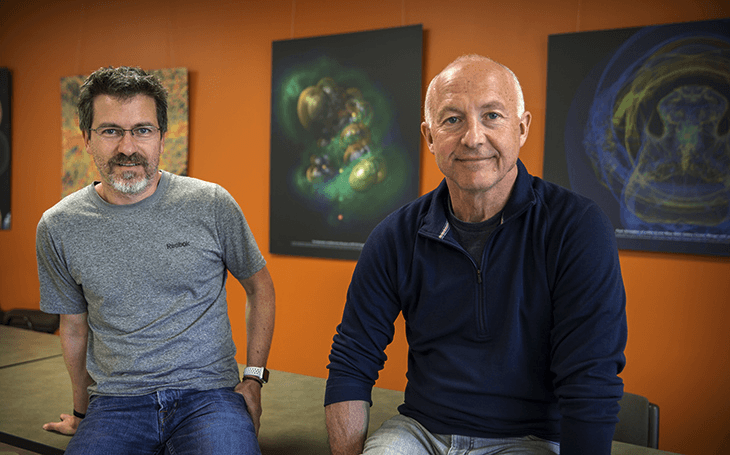/physics-major-minor-1800x5403e03eee5-5f7d-491c-8dfa-d28b41953f96.webp?sfvrsn=745d2cf4_5)
/physics-major-minor-1800x5403e03eee5-5f7d-491c-8dfa-d28b41953f96.webp?sfvrsn=745d2cf4_5)
/physics-major-minor-420x560bfb57eee-daa5-4a9b-9bff-09cf2fe48d41.webp?sfvrsn=e06876c4_8)
Physics
Major, Minor
Physics major overview
Discover how the universe works, from tiny particles to giant galaxies! As a physics major, you'll team up with amazing professors and other students who share your passion. This path will set you up for exciting careers in physics, math, engineering, computer science and beyond.
AT A GLANCE
Why become a physics major at CMU
Explore the wonders of the universe as a physics major. Learn the principles of physics, from thermal energy to quantum theory, astrophysics and advanced mathematics. You'll dive into hands-on lab work and use cutting-edge facilities to turn theory into practice.
Quantum science
Nuclear physics
Opportunities as a physics major
As a physics major, you'll:
- Become career or graduate school ready: Join a program in which nearly 100% of graduating students secure jobs or gain admittance into graduate programs.
- Have hands-on research opportunities: You research advanced technology like laser spectroscopy or study the stars using our telescope at Brooks Astronomical Observatory. Many students share their research at national events, and over half take part in summer research programs.
- Get involved: Join a physics student organization to get involved, build connections and expand your personal and professional portfolio with experiences you can use on job interviews.
- Earn scholarships: Be eligible to receive the Kenneth Wright Physics, David H. Current or Kenneth W. And Margaret Cuff Saunders scholarships.
- Get paid for experience: you will have access to paid summer research experiences supported by federal funding regularly obtained by faculty in the department.
Careers for physics majors
With a degree in physics you’ll be prepared for a variety of careers related to physics, mathematics, engineering, computer science, finance and more.
| Career | Projected Salary |
|---|---|
| Physicist | $166,290 |
| Data Scientist | $112,590 |
| Physical Scientist | $119,050 |
| Research Scientist | $100,590 |
| Scientific Research and Development Services | $140,910 |


Boosting the science of creating new materials
A Central Michigan University-led team received a $5 million grant from the U.S. Department of Energy to improve computer models that predict how materials react at the atomic level. These models, faster than lab experiments, currently face an accuracy issue called "electron self-interaction."
The team, including researchers from four universities, aims to fix this problem. The funding will support software development and research, with potential applications in energy and technology. If successful, their method could be widely adopted by scientists, significantly advancing materials science research.
Request Information about CMU
By submitting this form, I agree to receive calls, emails and/or text messages from Central Michigan University to discuss furthering my education.